Hiring top-notch technical talent is crucial for the success of any organization in today's tech-driven world
Conducting effective technical interviews is a critical step in identifying the right candidates who possess the skills, knowledge, and cultural fit necessary to excel in your company. We’ll go ahead and explore some key strategies and best practices to help IT managers conduct successful technical interviews.
1. Define Clear Objectives
Before you even start scheduling interviews, it's essential to define clear objectives for the technical interview process. What specific skills and qualifications are you looking for in a candidate? What is the role's primary focus? Knowing your objectives will help you create a tailored interview process that aligns with your organization's needs.
2. Prepare a Comprehensive Job Description
A well-crafted job description serves as the foundation for an effective technical interview. Make sure it accurately reflects the responsibilities, qualifications, and expectations of the role. When candidates have a clear understanding of what's expected, they can better prepare, leading to more productive interviews.
3. Develop a Structured Interview Format
Structured interviews provide a consistent and fair assessment of candidates. Create a set of standardized questions or tasks that all candidates will encounter during their interviews. This allows for an apples-to-apples comparison of their performance and skills.
4. Involve the Right Stakeholders
Collaboration is key to conducting an effective technical interview. Involve team members who will work closely with the new hire in the interview process. Their perspectives and input can help ensure the candidate's technical fit and cultural alignment.
5. Assess Problem-Solving Skills
Technical roles often require strong problem-solving abilities. Incorporate real-world scenarios and coding challenges relevant to the job into your interview process. This not only evaluates a candidate's technical skills but also their ability to think critically and handle complex tasks.
6. Evaluate Soft Skills and Cultural Fit
While technical skills are crucial, don't overlook the importance of soft skills and cultural fit. Technical team members must collaborate effectively and communicate well. Include questions or scenarios that assess a candidate's teamwork, communication, and adaptability.
7. Stay Up-to-Date with Industry Trends
The technology landscape is constantly evolving. Ensure your interviewers are aware of the latest industry trends, tools, and best practices. This knowledge will help them assess whether a candidate can adapt and stay relevant in a rapidly changing field.
8. Provide Adequate Training for Interviewers
Interviewers should be well-prepared and trained to conduct effective technical interviews. Offer training sessions to ensure that your team understands the interview process, best practices, and legal considerations.
9. Create a Comfortable Interview Environment
Interviews can be stressful for candidates, so strive to create a welcoming and comfortable atmosphere. Begin with a friendly introduction, set clear expectations, and allow candidates to ask questions. The more at ease candidates feel, the better they can showcase their true abilities.
10. Gather Feedback and Iterate
After each interview, encourage interviewers to provide feedback and rate candidates objectively. Use this feedback to refine your interview process continuously. Regularly assess the effectiveness of your questions and adjust them as needed to ensure they align with your objectives.
Conducting effective technical interviews requires careful planning, structured processes, and a focus on both technical skills and cultural fit. By following these best practices, HR professionals and IT hiring managers can better identify the right candidates for their technical roles, ultimately contributing to the success of their organizations and the growth of their teams. Remember that the goal is not just to hire the best technical talent but also to create a positive and inclusive experience for all candidates throughout the interview process





